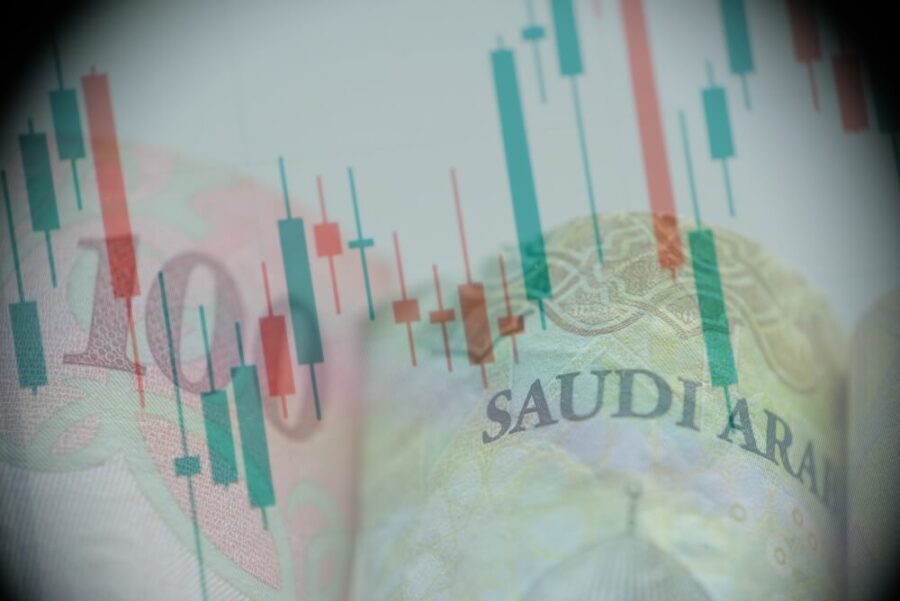Last week, Saudi Crown Prince Mohammed bin Salman announced the launch of four special economic zones, which are expected to create tens of thousands of jobs and contribute billions of riyals to the GDP.
These zones will boost the interest of local and international investors in the context of the Kingdom’s plan to become a global trade hub in line with its Vision 2030.
The new Saudi regions will focus on key growth sectors, which include advanced manufacturing, cloud computing, medical technology, and more.
Details about Saudi Arabia’s Economic Zones
The new zones include the Special Economic Zone in King Abdullah Economic City, the Special Economic Zone in Jazan, the Special Economic Zone in Ras Al-Khair, and the Special Economic Zone for Cloud Computing and Informatics.
In recent years, Riyadh has intensified its efforts to diversify its economy, which has traditionally relied on oil. These zones will help strengthen automotive supply chains, consumer goods assembly, food products processing and distribution, and strengthening of marine value chains, and cloud computing.
Read: Saudi launches 4 new economic zones
Khalid al-Falih, investment minister and chairman of Saudi Arabia’s Economic Cities and Special Zones Authority, said the kingdom was proud of the special economic zones which provide opportunities for foreign investors “to have a share in the world’s fastest-growing economy.”
A few days ago, the International Monetary Fund (IMF) raised its forecast of Saudi economic growth for the current year to 3.1 percent and attributed the improvement in its performance to two main elements: Reforms implemented by the Saudi leadership, which it said proved its ability to diversify the economy and enhance the ability of the non-oil sector to grow, in addition to diversification of sources of income in the country.
Al-Falih pointed out that the Kingdom’s vision seeks to unlock the potential of the private sector to drive growth and innovation. “We have already implemented comprehensive reforms to open up our economy and enhance competitiveness – and these SEZs will help take these efforts to the next level,” he added.
Nabil Khoja, secretary-general of Saudi Arabia’s Special Economic Zone Authority, said the zones “will become engines of growth” and will contribute to increasing the Arab nation’s export competitiveness, attracting talent, boosting technology, and improving our “global connections.”
In a press release issued last Friday, luxury electric car maker Lucid announced it will produce 150,000 electric vehicles a year from its base in King Abdullah Special Economic City.
The Cloud Special Economic Zone, located at King Abdulaziz City for Science and Technology, will allow investors to establish physical data centers and cloud computing infrastructure across the Kingdom.
In Ras Al Khair’s Special Economic Zone, 42 percent of the zone has already been reserved, with opportunities ranging from shipbuilding and repair to offshore drilling and offshore value chains. The Jazan Special Economic Zone will provide access to the region’s largest port for the export of goods and the import of materials.
This will help investors benefit from and contribute to large-scale infrastructure projects in Saudi and around the world.
In numbers, the Kingdom achieved a growth of 8.7 percent in 2022, while the growth of the non-oil sector was at 5.4 percent.
The volume of foreign direct investment in 2021 amounted to $19.3 billion, while Saudi was the second lowest country in terms of debt-to-GDP ratio in the G20 countries. The Kingdom achieved a budget surplus in 2022 of $28 billion.
Saudi also enjoys an important position in global trade. Thirteen percent of global trade passes through the Red Sea, an important coastal border with the kingdom.
Last year, Saudi Arabia launched the National Global Supply Chain Initiative, which aims to strengthen the Kingdom’s position as a key hub and vital link in global supply chains. The initiative aims to attract quality, industrial and service investments worth 40 billion riyals ($10.7 billion) during the first two years of the initiative’s launch.
How important are SEZs?
In general, the benefits of SEZs are many and obvious. They help stimulate economic growth and job creation in developed and developing countries. In addition, they can play a role in reducing poverty and inequality by supporting innovation and entrepreneurship.
SEZs typically provide many incentives such as low or zero tax rates, which can help businesses in these zones become more competitive. In addition, these regions can provide increased access to capital and resources, which can help stimulate economic growth in both developed and developing countries.
Special economic zones offer a number of advantages, including:
- Increasing FDI: SEZs are attractive areas for FDI, as they provide a more favorable environment for business growth. This increased investment leads to job creation and economic development in the host country.
- Lowering trade barriers: To be classified as special economic zones, countries must remove trade barriers such as tariffs and non-tariff barriers. This opens the domestic market to foreign competition, leading to lower prices and increased consumer choice. It also leads to the development of new export markets for goods and services produced in the Special Economic Zone.
- Greater competition: By allowing foreign companies to operate in their own markets under more competitive conditions, SEZs help create a level playing field for businesses around the world. This encourages innovation and entrepreneurship, ultimately leading to greater economic growth and prosperity for all involved.
China, the world’s second-largest economy, relies on special economic zones and sees them as a key part of its special economic development strategy.
In 2016, China announced plans to create 100 new special economic zones, adding to the 214.
India has also invested heavily in special economic zones over the past few years, with plans to establish 300 ones by 2020.
There are now more than 2,000 special economic zones operating in 47 countries around the world.
For more on Saudi, click here.








